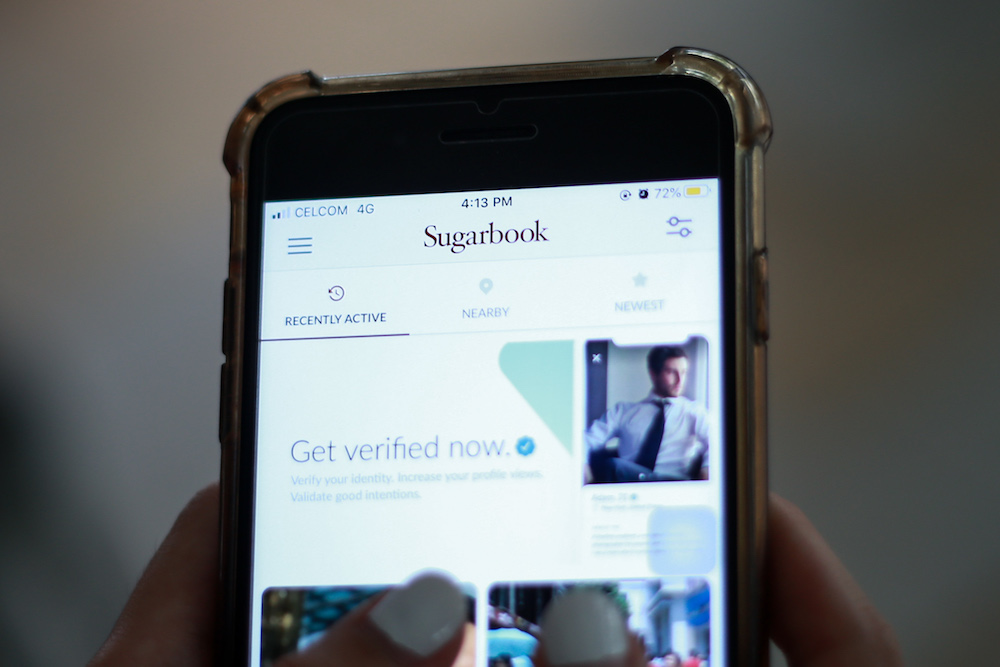KUALA LUMPUR, Feb 18 — Social media has been abuzz after a homegrown sugar dating platform, Sugarbook, triggered controversy with its sugar daddy and sugar baby statistics in Malaysia.
The sugar dating platform released a list claiming that many sugar babies in Malaysia belong to some of the country’s top private and local universities — causing outrage among varsities and various groups.
As expected, there was a blanket ban on the website after several groups called for stern action against the platform.
But the bigger picture is that such activities are not new and have been practiced for decades, if not centuries.
And for as long as there’s demand, there will possibly be supply.
To better understand the roots of this age-old problem, Malay Mail reached out to social activists for their take on the matter.
Renowned human rights activist Datuk Dr Raj Abdul Karim said the act of affluent men seeking a beautiful young companion and vice versa was not a new phenomenon and has been around for ages.
In fact, Dr Raj recalled that the terms sugar baby and sugar daddy were already around in the 1990s when she was working at the National Population and Family Development Board.
“This has been on for the past few decades, but it now has the social media element to it.”
When asked about the main factors stimulating the practice, Dr Raj quickly pointed to financial burden among various societal groups.
She said over the past year, many reports warned of the negative consequences of the Covid-19 pandemic and the movement control order on youth, which included the possibility of exposure to perpetrators and illegal activities.
“There was enough of this talk for a year since the pandemic started but it looks like the government agencies did not put their mechanisms in use to avoid such issues.
“We can now see such issues surfacing.”
According to her, the financial burden brought by the pandemic could be one of the leading factors encouraging young girls to get involved in such activities.
“[Sugar dating issues and sexual exploitation] will continue to happen for as long as people have financial difficulties.”
She pointed out that boredom and the luxury lifestyle exposed on social media are other contributing factors why girls would seek for an affluent elder companion.
Dr Raj also noted that the sugar babies’ main objective may not be very different from sex workers and the human trafficking victims as most of them either want to make ends meet or opt for a better life.
Dr Raj’s views about the connection of financial burden to the sugar baby issue was reflected in recent reports by Sugarbook that said their website saw a 40 per cent spike in sign-ups among university students last month.
The sugar dating site claimed that the sharp rise in demand was due to the financial burden among the varsity students.
In fact, the trend was not only seen in Malaysia as news reports from other countries including Canada, the United States, the Philippines, India, Indonesia and Singapore revealed an increase in the sugar dating trend since the start of the pandemic.
Looking at the matter from a different perspective, human rights activist Ivy Josiah questioned why people always focussed on the motivation of the girls instead of questioning the older men’s desire for a younger companion.
“Whether it is old bridegrooms seeking child marriage or sugar daddies the underlying reason [is] in the unequal power dynamics, the sexualisation of young bodies.”
Blocking just Sugarbook is not the solution
Following calls for strict actions to be taken, the Malaysian Communications and Multimedia Commission blocked access to Sugarbook website on Monday.
Although the move may halt the dating site’s operations, Dr Raj said the move may not solve the main problem.
Instead, she called for more effective long-term solutions to tackle the issue as the matter is not limited to just one platform.
Ivy also shared similar sentiments with Raj and said banning a website may not solve the main problem.
“As long as there is a demand there will be a supply.
“If young women do engage, they need to be able to give informed consent, so they fully realise the potential risks.”
Dr Raj, on the other hand, said relevant agencies should utilise all their tools to investigate the dark web and look beyond the surface to detect any suspicious activities.
“It is vital to set up specialised labs with experts to do continuous monitoring of these cases.
“You can’t just be reactionary and take action when something happens. It has to be an ongoing effort with a diligent monitoring and evaluation system.”
While most dating platforms glorify the life of a sugar baby by offering perks and allowances for their companionship, Dr Raj warned that such activities could lead to sexual exploitation, abuse and psychological trauma.
“It may look harmless at the beginning, but the dangers go beyond what you may have thought.”
Dr Raj said although the sugar dating activities are consensual and involve adults, it may lead to serious implications as these young girls are vulnerable to sexual exploitation and abuse.
Ivy also raised her concerns and warned of possible risks of exploitation, abuse and rape should young and vulnerable women engage in such activities.
“Where do they go for help as there is so much moral judgment against these young women,” she asked.






















